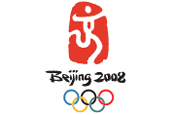With less than a year to go before the opening ceremony, the Beijing Olympics have polarised opinion to an extent not seen since the Moscow Games in 1980. The vast marketing platform offered by staging the event in the world's most populous country is being weighed against the Chinese government's continuing poor record on human rights and environmental issues.
From a commercial perspective, the appeal of the Beijing Games is obvious: the Olympics are an unparalleled showcase for sponsor brands in front of a population of 1.3bn people.
According to Alun James, managing director of Four Sports, Arts & Sponsorship, the opportunity to gain exposure in such a populous and increasingly prosperous country is a major attraction for global brands. 'It is a big tick in the box,' he says.
WPP chief executive Sir Martin Sorrell agrees, pointing out that the biggest live audience ever recorded was 1bn people for the Chinese New Year celebration gala shown by state broadcaster CCTV. 'Advertisers want the live audiences that the Olympics delivers,' he adds.
Sponsorship income now accounts for 40% of the International Olympics Committee's (IOC) total revenue. The highest tier of sponsors, The Olympic Partners (TOP), comprises a number of major brands including McDonald's, Samsung and Coca-Cola.
The sponsors in the TOP programme for the 2005-08 four-year cycle, which covers the Turin and Beijing games, have paid $866m for the privilege, up from $663m for Salt Lake City and Athens in 2001-04. The figures are for cash and value-in-hand support.
Domestic sponsorship within China is separate and handled by the Beijing Organising Committee. Overseas brands such as US delivery company UPS, Volkswagen, Adidas and Johnson & Johnson have signed up at this level, alongside Chinese brands such as Yanjing beer.
'Association with the Olympics is stronger than it has ever been in terms of the levels of interest in the Games. The business world wants to learn more about China, to build a position in a country with growing consumer choice,' says Michael Payne, former head of
marketing and broadcast at the IOC and the architect of the TOP programme. 'The Olympics is a great way of achieving product differentiation.'
In 2001, when the IOC awarded the Games to Beijing, Payne claims the world's business leaders were united in their support. 'They saw it as a way of speeding up the process of opening up the country,' he says.
The desire to transform the image of China has led to an escalation in the cost of staging the games. The bill currently stands at $38bn, according to the Chinese Academy of Social Sciences, with infrastructure improvements in the city doubling that figure. The building programme has led many to question the long-term environmental legacy of the Games as the city eats into rural areas.
However, the slow pace of change in China is troubling human rights groups including Amnesty International, which question whether the Chinese government is keeping its promises on reform. They have expressed concern that rather than being a force for liberalisation, the Olympics are being used as a reason to 'clean up Beijing' before the city comes under the global spotlight next year.
'Not only are we not seeing delivery on the promises made that the Olympics would help improve the human rights situation in China, but the police are using the pretext of the Olympics to extend the use of detention without trial,' says Amnesty International secretary-general Irene Khan.
Activists in Beijing face house arrest and tight police surveillance, the media is being muffled, journalists and writers imprisoned and the internet censored. More broadly, China executes more of its own people than any other country in the world; an estimated 8000 people died at the hands of the state in 2006.
Critics point out that such practices are at odds with the principles of the Olympics, which include 'the preservation of human dignity' and 'respect for universal fundamental ethical principles' as laid down in the Olympic Charter.
'It is an imperfect solution, but we must continue the dialogue,' argues Payne. 'What is the alternative? Not to engage with China, to cut it off from the rest of the world? Is that the best way of moving forward?'
He believes it is a mistake to think the Olympics will change everything in the country before the opening ceremony, echoing a statement by IOC president Jacques Rogge as part of the 'year to go' celebrations. 'With Beijing, one of the great challenges will be to manage expectations that the Olympic Games can influence China's evolution to the extent many observers desire,' said Rogge.
But it is testimony to the broad and enduring appeal of the Olympic Games that it carries with it the hopes of so many differing constituencies.
For sponsors, the coming months are likely to prove to be a test of resolve in the face of growing media attention, proving once again that the Olympics are about much more than sport.
TOP Sponsors
Sponsor Coca-Cola
Sector Non-alcoholic beverages
Contract expires 2020
Sponsor General Electric
Sector Energy
Contract expires 2012
Sponsor Kodak
Sector Film/photographic images
Contract expires 2008
Sponsor Lenovo
Sector Computing technology equipmt
Contract expires 2008
Sponsor Manulife
Sector Life insurance
Contract expires 2008
Sponsor Atos Origin
Sector Information technology
Contract expires 2012
Sponsor McDonald's
Sector Retail food services
Contract expires 2012
Sponsor Omega
Sector Timing/scoring
Contract expires 2008
Sponsor Panasonic
Sector Audio/TV/video
Contract expires 2008
Sponsor Samsung
Sector Wireless communications
Contract expires 2008
Sponsor Visa
Sector Consumer payment systems
Contract expires 2012
Sponsor Johnson & Johnson
Sector Healthcare products
Contract expires 2008
Total revenue 2001-04 $663m
Projected total revenue 2005-08 $866m
Source: IOC


